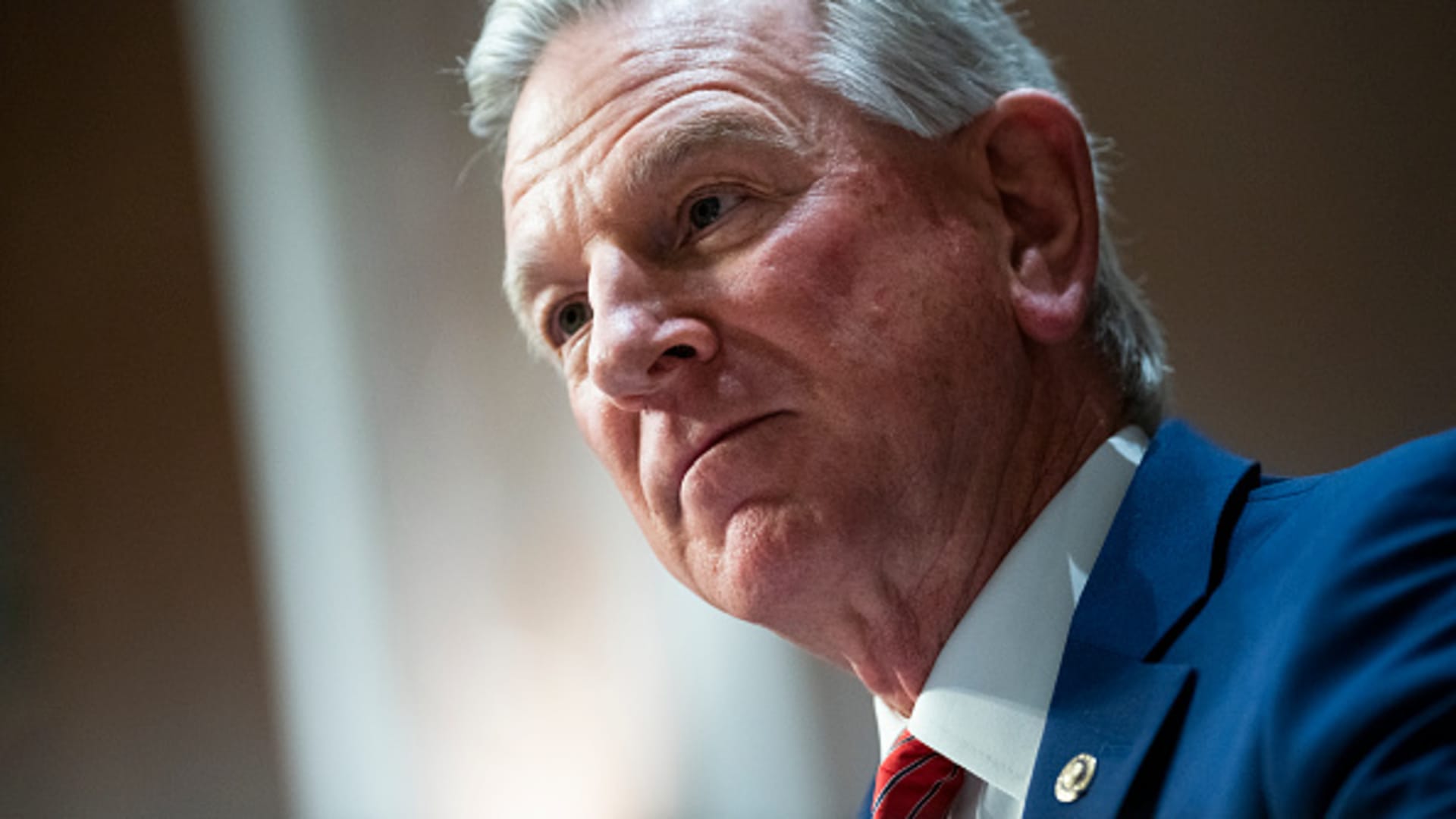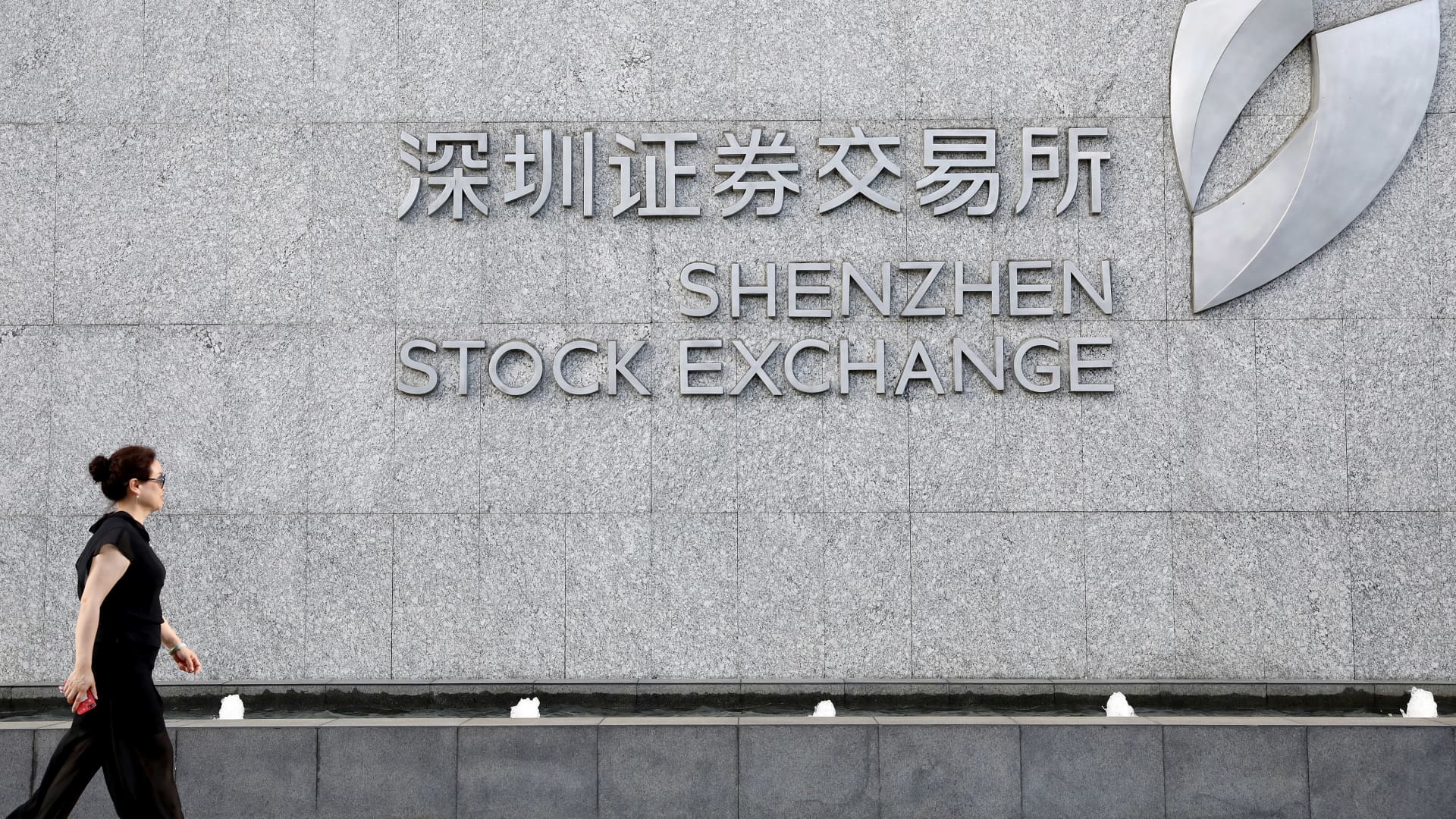Washington lawmakers hold on to crypto holdings despite calls for new laws in wake of FTX collapse
At least nine lawmakers in Washington across both the House and Senate have traded over a dozen different crypto stocks and assets since last year.

The collapse of cryptocurrency exchange FTX has pulled a host of other companies down with it and threatens the stability of the digital coin marketplace, but some lawmakers on Capitol Hill are holding on to their crypto investments — even as they call for tighter regulations.
At least nine lawmakers in Washington across both the House and Senate have traded over a dozen different crypto stocks and assets since last year, according to Capitol Trades, a website that tracks stock trades by lawmakers on Capitol Hill.
Another lawmaker, Republican Sen. Tommy Tuberville of Alabama, disclosed at a Senate Agriculture Committee hearing about FTX on Thursday that he, too, holds some crypto assets. Tuberville's most recent disclosure reports from this year reviewed by CNBC do not show any crypto stock purchases.
Out of all ten offices contacted, only one said they sold their crypto stock holdings after FTX imploded. Rep. Marie Newman, D-Ill., who lost her bid for reelection owned crypto stock up until last week, recently sold her digital token stocks as the industry took a hit.
"Congresswoman Newman's husband sold their coin-based stock last week due to the volatile nature of the sector," Marcus Garza, a spokesman for Newman, told CNBC in an email.
Congressional records show Garza and her husband previously held positions in multiple crypto related stocks and assets, including in Coinbase Global, a cryptocurrency trading platform. Newman and her husband recently disclosed a January joint purchase of Coinbase stock worth between $1,001 and $15,000. The disclosure reports for all lawmakers only show a range of how much their stock purchases are worth.
Coinbase's stock price, as of Thursday morning, is down by over half a percentage point.
Kedric Payne, an ethics attorney at the Campaign Legal Center, said lawmakers who own crypto assets have a conflict of interest in trying to write laws to rein in the industry following the collapse of FTX.
"This is another example of how even well-intentioned lawmakers can't escape the perception of corruption when they own individual stocks or crypto," Payne said in an email. "Voters won't likely trust that lawmakers who own crypto will regulate it to their detriment. Reform is inevitable because these conflicts of interests are not going away."
He noted that these conflicts can be avoided if Congress passed laws that put "a ban on members and spouses trading individual stocks unless there in a blind trust."
Walter Shaub, who was the director of the United States Office of Government Ethics under former Presidents Barack Obama and, for a short stint, Donald Trump, said lawmakers shouldn't hold crypto assets when they are looking at writing new laws to tighten oversight of the industry in the wake of the FTX scandal.
"It is outrageous that members of Congress would be invested in cryptocurrency and related companies at a time when the FTX scandal has necessitated congressional oversight and possible reform," Shaub said. "This is precisely why Congress needs to ban its members from trading or owning conflicting investments."
The lack of internal controls and a number of questionable decisions by former CEO Sam Bankman-Fried are shining a bright light on the scant oversight of the industry. Some of the lawmakers who hold crypto investments have criticized the failure of Congress to pass laws that would give financial regulators like the Securities and Exchange Commission more authority to police the industry.
Sen. Pat Toomey, R-Pa., who is also the ranking member of the Senate Banking Committee, tweeted last month after the FTX collapse that "The impact to Americans from today's bankruptcy filing by @FTX_Official might have been mitigated if there were a sensible, legislatively authorized, American regulatory framework for digital assets." Toomey is retiring from Congress and is being replaced by Democrat John Fetterman.
Despite the calls for clearer regulations, Toomey signaled to CNBC he has no plans to sell his cryptocurrency investments. He and his wife owned between $2,000 and $30,000, combined, between Grayscale Ethereum Trust and Grayscale Bitcoin Trust as of the end of last year, according to Toomey's latest annual financial disclosure reviewed by CNBC.
Grayscale Ethereum Trust represents an investment vehicle that's meant to hold Ethereum assets, a cryptocurrency. Grayscale Bitcoin Trust is an investment vehicle, with the purpose of holding Bitcoins.
Toomey told CNBC "HODL" when asked about whether he plans to sell his crypto stock following FTX's collapse. HODL is an abbreviation for "hold on for dear life," a common phrase used by crypto investors when they have no plans to sell their industry assets, even if prices are falling. The price of Grayscale Ethereum Trust is down almost five percent. The price of Grayscale Bitcoin Trust is down almost two percent.
Representatives for almost all the other lawmakers who have purchased stock in cryptocurrency did not respond when asked whether their bosses plan to sell off their digital token assets following the FTX collapse.
Ryann DuRant, a spokeswoman for Tuberville, told CNBC in an email that the Alabama lawmaker will continue to disclose "all qualifying transactions" but did not answer specific questions about his crypto stock holdings. "Senators are required to file periodic reports for certain financial securities transactions of $1,000 or more. The Senator has, and continues to, report on all qualifying transactions," DuRant said in response to a list of questions.
Sen. Cynthia Lummis, R-Wyo., owns between $100,001 and $250,000 in Bitcoin, according to her latest financial disclosure report. The report, which shows Lummis' assets through last year, says a "Qualified Blind Trust (QBT) is currently pending approval from the U.S. Senate Ethics Committee."
Lummis is a member of the Senate Banking Committee and has cosponsored legislation with Sen. Kirsten Gillibrand, D-N.Y., that would classify digital assets as commodities like wheat or oil and empower the Commodity Futures Trading Commission to rein in the nascent industry. Since the collapse of FTX, Lummis has said "it's just time to regulate this space."
Abegail Cave, a spokeswoman for Lummis, told CNBC after publication of this story that the Wyoming lawmaker "is a self-proclaimed HODLR and nothing has changed that view." She also noted Lummis has "been working with the Senate Ethics Committee to put her assets, including her bitcoin holdings, in a blind trust."
After pushing to allow cryptocurrencies into retirement plans, Tuberville, who was a college football coach before heading to Washington, compared the fall of FTX to losing a football game at the Thursday hearing featuring Rostin Behnam, chair of the Commodity Futures Trading Commission. He also said there needs to be more rules surrounding crypto.
"Kind of remind me of sitting in a chair after I got the heck beat out of me in the football game and knowing the other team didn't go by the rules," Tuberville said. "We've screwed this up. You got to have rules."

 Tekef
Tekef 

































